2020-2021 Medical Humanities Research Fellows
2020-2021 Research Fellowship Recipients
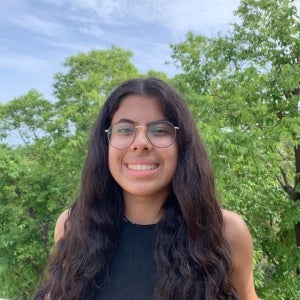
Anjali Britto
Affiliation: School of Foreign Service, Class of 2022
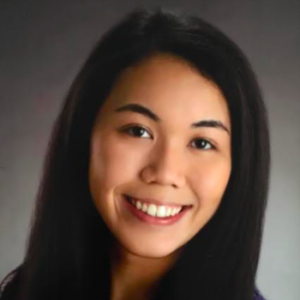
Rachael Johnson
Affiliation: Georgetown College, Class of 2022
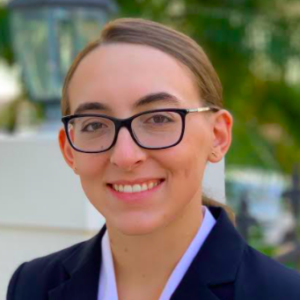
Sarah Laird
Affiliation: Georgetown College, Class of 2021
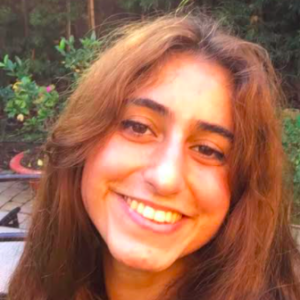
Saba Nia
Affiliation: Georgetown College, Class of 2023
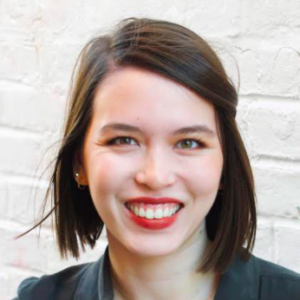
Elisa Reverman
Affiliation: PhD student; Department of Philosophy
2020-2021 Medical Humanities HALC Student Fellows
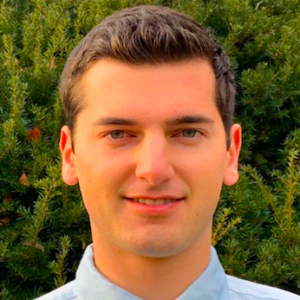
Peter DiGiovanni
Affiliation: Georgetown College, Class of 2021
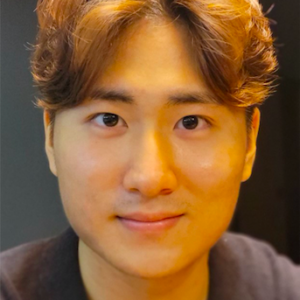
Haeseong Lee
Affiliation: Georgetown College, Class of 2021
2020-2021 Research Projects
“What the Lockdown Gave Me” Mixed media project
Fellowship recipient: Anjali Britto
Affiliation: School of Foreign Service, Science, Technology and International Affairs (STIA) major, Class of 2022
Faculty Advisor: Toni-Lee Sangastiano
I found four themes that I built my piece around. The first was time. Time really did feel like a circle, with every point on the circle feeling so all-encompassing that you can’t believe you were ever on a different point on the circle. British historian CV Wedgewood wrote about how history is written in retrospect. One can never re-capture what it was like to know the beginning only. I found myself at the beginning, and this is my attempt to write it before it gets coloured by the end.
Closely related to time was the twilight that seemed to weigh down heavily then. In Twilight of the Idols, Nietzsche said that ugliness is perceived from the hatred man feels towards the decline of his own kind. The twilight of ugliness, mourning, and tragedy — the decline of normalcy — was a sharp contrast to the imaginings I had for those months. The next theme was about what the water gave me. Water is the foundation of this piece. I wanted to capture the way water stays with you. It’s unpredictable, and you never know how you’ll come away feeling. The last theme had to do with religion, mythology, and stories. Just like in The Decameron, seemingly trivial and frivolous stories can say much more than one would think. Myths and stories of those who went before provide comfort, and comfort enough to tell your own story.
Author’s Note: Working on What the Lockdown Gave Me, made possible by the Medical Humanities Fellowship, was an incredible experience. One of the objectives I hoped to achieve through this project was understanding how visual media and storytelling can be more than the sum of the narratives that make it up. This was an extraordinary challenge for me. Never before had I worked on a visual arts project of this scale, or one that required as much thought, analysis, and experimentation. In working on this project, I have grown in my abilities to create visual art, and have gained confidence in my ability to create visual narratives. I think of the time spent on this project as one of most humbling, exciting, and rewarding experiences I have had in a while.
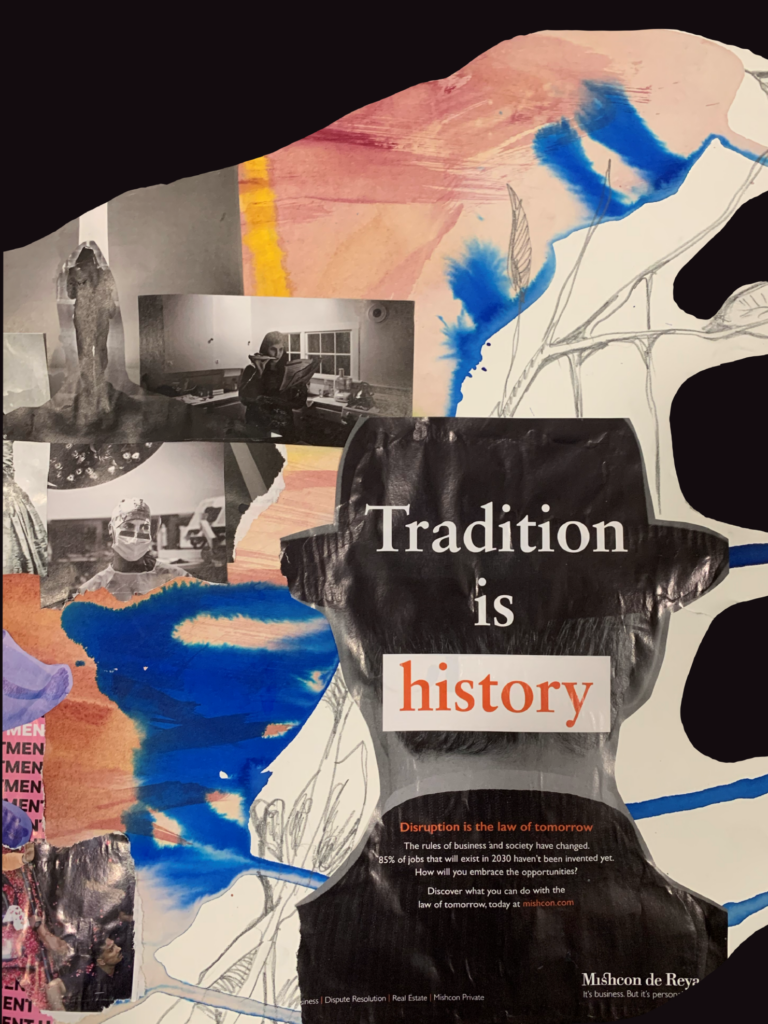
Anjali Britto, What the Lockdown Gave Me
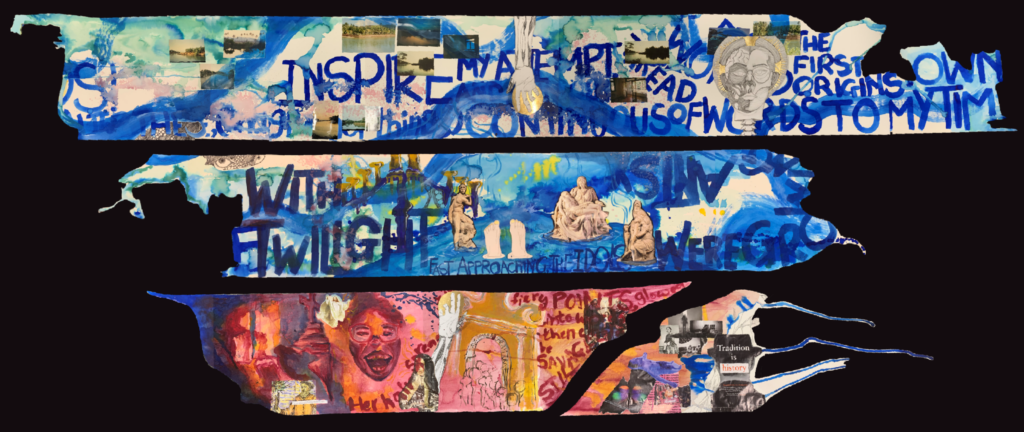
Anjali Britto, What the Lockdown Gave Me

“Chrono-Biopolitics and Disability in William Faulkner’s The Sound and the Fury
Fellowship recipient: Rachael Johnson
Affiliation: Georgetown College, English, Pre-Medical track, Class of 2022
Faculty Advisor: Libbie Rifkin
“Chrono-Biopolitics and Disability in William Faulkner’s The Sound and the Fury” addresses the harmful ways in which disabled people are impacted by the medical model of disability, with an emphasis on analyzing representations of mental disability in American literature of the twentieth century. Disability and cure are constructed by the medical model with the intention to repair, overcome, and restore the “impaired” and/or “damaged” bodymind. Thus, the ideology of cure is often underpinned by a culture of violence that relies on ableist inventions of defectiveness to eradicate disabled bodyminds. Using a disability justice framework and The Sound and the Fury by William Faulkner as my primary textual reference, I explore in this paper the relationship of queer, or deviant, bodyminds to temporal regulations, which are dictated by a biopolitical concept known as “chrono-normativity,” and how deviant bodyminds are shown to either conform with or challenge chrono-normative expectations.
The working draft of the research paper received an honorable mention at the 2021 Bioethics Research Showcase under Georgetown’s Kennedy Institute of Ethics.
Author’s Note: I am a junior at Georgetown studying English and pre-medical sciences. While I intend to pursue a career in the medical field, I decided to major in a humanities discipline because I believe in the importance of understanding human health and the process of healing – as well as the American medical establishment more broadly – in terms of a greater social, cultural, and historical context. Additionally, I developed a keen interest in disability studies while enrolled in courses such as Introduction to Disability Studies and Religion and Disability Studies last year. These academic involvements led me to pursue this independent research project, in which I integrate literature and medicine to gain critical insight into the identities and lived experiences of the mentally disabled. I hope you’ll enjoy reading this paper as much as I enjoyed writing it!

“If Pachacuti Ran Your Hospital: What Inca and Andean Healing Practices Reveal About the Role of Rituals in Medicine”
Fellowship recipient: Sarah Laird
Affiliation: Georgetown College, History and Pre-Medical Sciences, Class of 2021
Faculty Advisor: Erick Langer
Author’s Note: Through this process, my conception of history and science as inextricably linked has strengthened. As long as we continue to study history, we will see how similar people of different eras and cultures are. As long as we continue to study medicine, we will see that healing and compassion are at humanity’s core. By joining the two together, we see that these values can be traced back to civilization’s very start. What led to the values we hold today are the actions of our ancestors however many generations ago. In studying the spiritual beliefs of those who came before us, we become a part of something much greater than ourselves that has existed for millennia.

“How Writing Heals: Assessing the Expressive Writing Program of the Georgetown Lombardi Arts and Humanities Program”
Fellowship recipient: Saba Nia
Affiliation: Georgetown College, Pre-Medical Sciences, Class of 2023
Faculty Advisor: Julia Langley
Author’s Note: I have greatly appreciated being able to research a field I care so deeply about and hope to further one day. I know without a doubt that this experience has furthered my own interest in writing, working with the Arts and Humanities Program, and my goal of becoming a psychiatrist and integrating expressive writing as a tool for healing.

“The Medicalization of Asian Embodiment” website
Fellowship recipient: Elisa Reverman
Affiliation: PhD student, Department of Philosophy
Faculty Advisor: Shelbi Nahwilet Meissner
This project looks at the history of racializing Asian bodies in the United States, linking practices from the smallpox epidemics of nineteenth century San Francisco to the global COVID-19 pandemic. My goal for this project is to walk you through four key aspects of what I call “the medicalization of Asian embodiment.” I cover a rough history of Asians in America, history on the project of sorting and categorizing people in the name of “science”, how these histories shape current events, and the challenges that rise in moving forward.
Author’s Note: I am currently a PhD student studying philosophy at Georgetown University. How I ended up in philosophy is somewhat long-winded, but it mostly happened by accident. My small liberal arts college experience generally had very few spaces for discussions about social justice, structural racism, and other pressing issues (I imagine this has changed since then – I graduated in 2017). My education was even more siloed from social issues because I was a STEM major – I spent most of my time memorizing biochemical cycles and reaction mechanisms. Being at Georgetown opened up a new way of looking at the world and helped me realize how abstracted and detached from the social world my education so far had been. I had access to classes that I hadn’t had before, like Black Radical Thought and Colonialism with Dr. Olúfẹ́mi Táíwò, and Indigenous Epistemologies with Dr. Shelbi Meissner. While these classes were philosophically rich and interesting in their own contents, I found them to be transformative in terms of self-understanding. I started to realize that a lot of my own views about my own Asian identity were heavily informed by a history that I had previously never known about.
